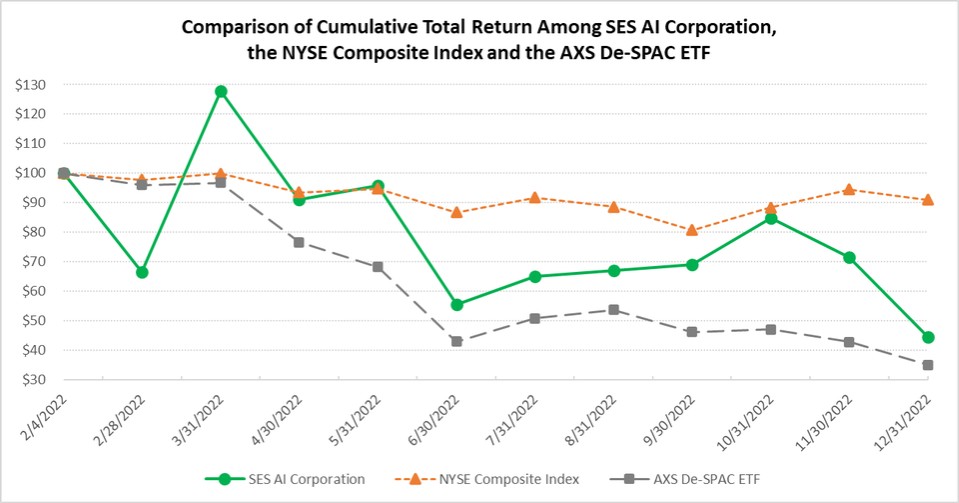Currently, government programs, including in China and Europe, favor the purchase of EVs, including through disincentives that discourage the use of gasoline-powered vehicles. In the United States, the Inflation Reduction Act of 2022 provides tax credits for the purchase of electric vehicles, and the states of California, Massachusetts, Oregon and Washington have recently banned the sale of new gas-powered vehicles by 2035, and other states may follow. If such government laws or programs are reduced or eliminated, or the available benefits thereunder are exhausted earlier than anticipated, demand for EVs may decrease and our anticipated sales of EV battery products could be adversely affected. In addition, OEM customers may delay taking delivery of our battery products if they believe that certain EV incentives will be available at a later date, which may adversely affect our business, financial condition, operating results and prospects.
Our incentives from various governments are conditional upon achieving or maintaining certain performance obligations and are subject to reduction, termination, or clawback.
We have received, and may in the future continue to receive, benefits and incentives from national, state, and local governments in various regions of the world designed to encourage us to establish, maintain, or increase investment, workforce, or production in those regions. These incentives may take various forms, including grants, loan subsidies, and tax arrangements, and typically require us to achieve or maintain certain levels of investment, capital spending, employment, technology deployment, or research and development activities to qualify for such incentives or could restrict us from undertaking certain activities. We may be unable to obtain significant future incentives to continue to fund a portion of our capital expenditures and operating costs, without which our cost structure would be adversely impacted. We also cannot guarantee that we will successfully achieve performance obligations required to qualify for these incentives or that the granting agencies will provide such funding. These incentive arrangements typically provide the granting agencies with rights to audit our compliance with their terms and obligations. Such audits could result in modifications to, or termination of, the applicable incentive program. The incentives we receive could be subject to reduction, termination, or clawback, and any decrease or clawback of government incentives could have a material adverse effect on our business, results of operations, or financial condition.
Risks Relating to Regulations and Our Compliance With Such Regulations
Our operations expose us to litigation, environmental and other legal compliance risks. Compliance with laws and regulations can be expensive, and our failure to comply with these laws and regulations may result in monetary damages and fines, adverse publicity and a material adverse effect on our business.
We are subject to a variety of litigation, environmental, health and safety and other legal compliance risks. These risks include, among other things, possible liability relating to product liability matters, personal injuries, intellectual property rights, contract-related claims, health and safety liabilities, environmental matters and compliance with U.S. and foreign laws, competition laws and laws governing improper business practices.
Our operations in the United States, China, and South Korea may be subject environmental laws and regulations, including laws and regulations relating to water, discharges, emissions, chemicals, hazardous materials, natural resources, remediation and contamination. Compliance with these laws can be difficult and costly. For example, battery life cycle management regulations and regulations governing the transport of batteries may impose substantial requirements on our operations in the United States. Our operations may be required to obtain and comply with environmental permits, many of which may be difficult and expensive to obtain and must be renewed on a periodic basis. A failure to comply with these laws, regulations or permits could result in substantial liabilities, including fines, penalties, the suspension or loss of permits, and possibly orders to cease the non-compliant operations.
As a business with international reach, we are subject to complex laws and regulations in jurisdictions in which we operate. Those laws and regulations may be interpreted in different ways. They may also change from time to time, as may related interpretations and other guidance. Changes in laws or regulations could result in higher expenses and payments, and uncertainty relating to laws or regulations may also affect how we conduct our operations and structure our investments and could limit our ability to enforce our rights.
Changes in environmental and climate laws or regulations, including laws relating to greenhouse gas emissions, could lead to new or additional investment in manufacturing designs, subject us to additional costs and restrictions, including increased energy and raw materials costs, and could increase environmental compliance expenditures. We are subject to various environmental laws and regulations on air emission, waste water discharge, solid waste, noise and the disposal of hazardous materials. Cobalt and lithium are toxic materials that are important raw materials in our batteries. We also use, generate and discharge other toxic, volatile and hazardous chemicals and wastes in our research, development and manufacturing activities. Under Chinese, South Korean, and U.S. environmental regulations, we are required to maintain the pollutant emission levels at the facility within the levels prescribed by the relevant governmental authorities and obtain a pollution discharge permit for water and air emissions. In addition, certain laws and regulations require enterprises like us that generate
